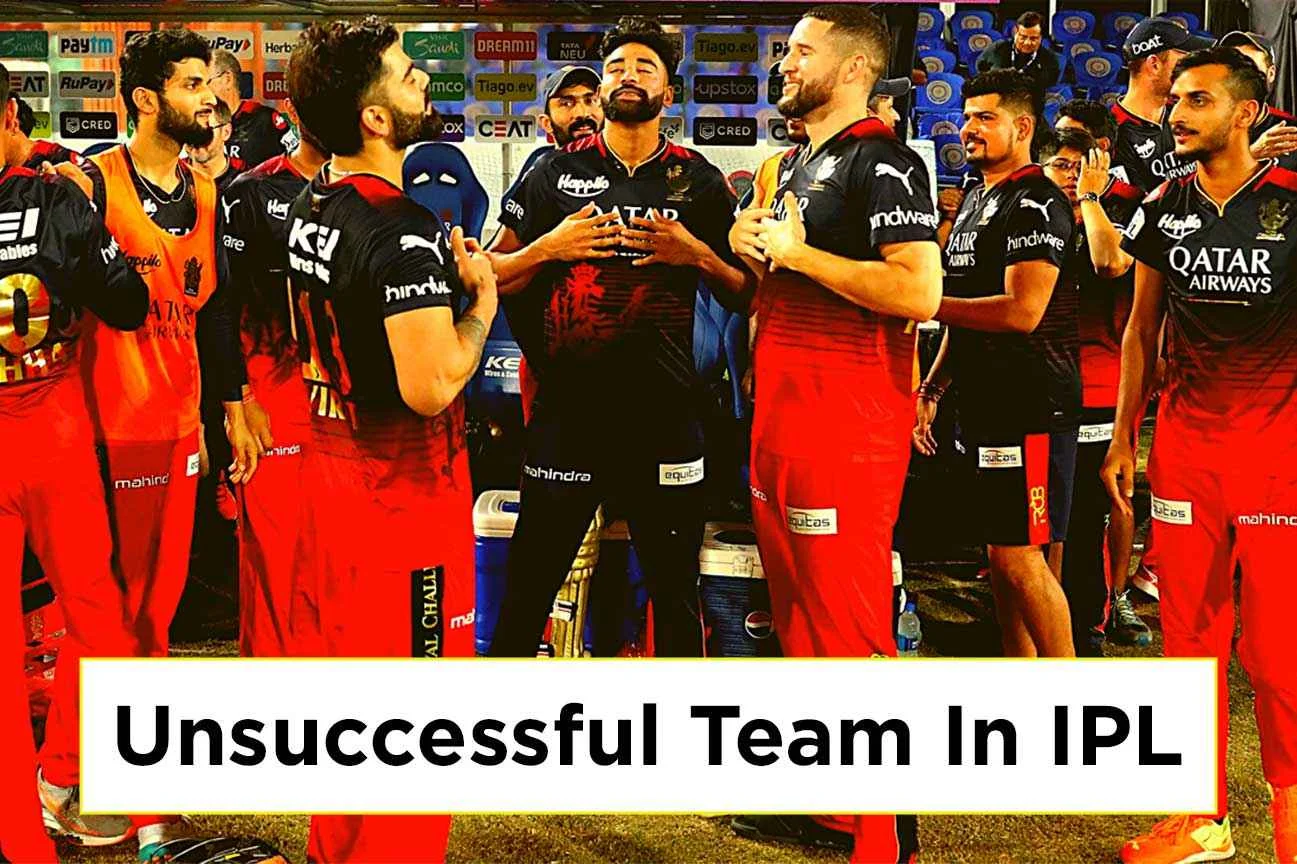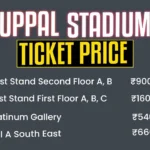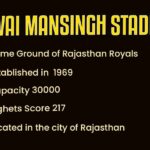The Indian Premier League (IPL) has been a mix of triumphs and failures for various franchises. Some teams have consistently excelled, creating dynasties through strong leadership, smart strategies, and stable squads. However, others have struggled to meet expectations, earning the label of “worst IPL teams” despite promising starts and individual brilliance.
Unsuccessful IPL teams often fail due to poor decision-making, lack of team cohesion, and an inability to adapt to the league’s ever-changing demands. Despite having talented players, these teams have struggled to build a winning unit, resulting in consistent underperformance and failure to make an impact in the playoffs.
As IPL 2024 draws closer, excitement is building among cricket fans. The tournament will take place across iconic venues like Wankhede Stadium, Feroz Shah Kotla, and Eden Gardens, offering an electrifying atmosphere. Fans can secure their tickets through official channels to experience the action live.
The 2024 IPL schedule promises a thrilling season from March to May, with teams battling it out in a round-robin format, followed by playoffs and the grand finale. While the top teams will aim to extend their dominance, the underperforming franchises will look to shed their “worst IPL team” tag and finally deliver a standout season.
Key Factors for Struggling IPL Teams
In every IPL season, some teams show promise but fail to perform consistently, often finishing at the bottom of the points table. Despite having talented players, these teams are unable to find the right balance, leading to disappointing results.
Several key factors contribute to their struggles, and understanding these can help us identify the patterns behind their underperformance:
Worrisome Win Percentage:
A win percentage of less than 50% over multiple seasons is a strong indicator of an underperforming team. Teams that consistently win fewer matches than they lose fail to build momentum, which is critical in a tournament as competitive as the IPL.
For example, teams like Royal Challengers Bangalore (RCB) have had seasons with a win percentage below 50%, despite having top players.
No Title Runs:
Teams that have never won the IPL trophy, despite participating in many seasons, reveal a pattern of underachievement. Some teams have come close but failed to clinch the title, indicating they often stumble during critical moments.
Teams like Kings XI Punjab (now Punjab Kings) and Delhi Capitals have been known for making it to the playoffs but falling short when it matters most.
Missing Playoff Action:
Failing to make it to the playoffs year after year is a clear sign of a lack of squad depth, mental strength, and consistency. A team’s inability to compete in the top four despite having good players reflects poorly on their ability to perform under pressure.
For instance, Delhi Capitals took many years to consistently reach the playoffs, often missing out on important opportunities.
Routine Losses to Heavyweights:
Struggling teams often find themselves on the receiving end of heavy defeats by IPL powerhouses like Mumbai Indians and Chennai Super Kings. These frequent losses highlight significant gaps in team quality, strategy, and mental toughness.
Teams like Deccan Chargers and Rajasthan Royals have faced consistent beatings from the big teams, which exposes their lack of stability.
Struggling IPL teams face multiple challenges, including poor performance in key matches, lack of depth, and inconsistency. To turn things around, these teams need to focus on building stronger, more cohesive squads, improve their strategies, and learn how to handle pressure during critical moments.
Challenges Faced by Underperforming IPL Teams
The IPL has seen some teams rise to glory, but others have consistently failed to meet expectations despite initial promise. These underperforming teams face several common issues:
- Inability to Perform Under Pressure: Teams like RCB and Delhi Capitals often struggle in crunch moments, failing to clinch titles despite having star players.
- Lack of Squad Depth: Teams such as Punjab Kings face inconsistency, with key players failing to deliver when needed, highlighting a lack of balance in their squad.
- Frequent Losses to Top Teams: Struggling teams often suffer heavy defeats against powerhouses like Mumbai Indians and Chennai Super Kings, exposing their mental and technical gaps.
- Poor Retention and Talent Management: Teams like Delhi Capitals have faced issues in building strong squads, with poor retention strategies and talent spotting affecting their chances.
- Emotion-Driven Decisions: Some franchises make key decisions based on emotions, such as captaincy changes, rather than focusing on data and performance, which impacts their overall results.
In summary, underperforming IPL teams need to improve their squad balance, decision-making, and ability to perform under pressure to turn their fortunes around.
Punjab Kings – Worst Win 44%
- Bright Beginnings: Their debut season raised hopes, but the early promise faded quickly, with only a single playoff appearance in 14 years, in 2014 when they finished as runners-up.
- Repeated Failures: Over the years, Punjab Kings have faced numerous lows, with their win percentage sinking as low as 27% in 2015, marking a tough phase for the team.
- Frequent Misses: Despite having talented players, Punjab has struggled to maintain consistency and frequently missed out on playoff spots, leading to continued disappointment.
The Punjab Kings’ IPL journey has been a roller-coaster ride, with moments of brilliance followed by long periods of underperformance. Fans have shown immense patience, but the team has yet to find the consistency needed to claim the title.
Delhi Capitals – Worst Win 46%
Sunrisers Hyderabad – Win 48%
Royal Challengers Bangalore – Win 49%
Rajasthan Royals – Win 50%
Common Factors Behind Underperforming Teams
Some common problems have repeatedly held back the IPL teams that haven’t been able to perform well over the years. Let’s break it down:
- Bad Auction Decisions: Many teams make poor decisions during the IPL auction. They either buy too many of one type of player or fail to pick the right mix, leaving gaps in the team that hurt them later.
- Not Managing Player Workload Well: Some teams don’t manage their players’ workloads properly, which leads to injuries or fatigue. This means their star players are often unavailable or underperforming when it matters the most.
- Too Many Batsmen, Not Enough Bowlers: While many struggling teams have strong batting line-ups, they often lack depth in their bowling attack. A team with a great batting side but weak bowling will struggle when chasing or defending low scores.
- Changing Captains and Coaches Too Often: Constant changes in leadership and coaching staff create confusion and disrupt the team’s chemistry. When there’s no stability in these key positions, the team struggles to build long-term strategies.
These issues, like poor decisions on which players to keep, lack of smart talent scouting, and emotional transfers, have caused repeated failures for many IPL teams. Until they fix these problems, it’s hard for them to break the cycle and start winning consistently.
Turnaround Best Practices
For once-powerful but now struggling teams like Bangalore and Punjab, the quest for their first IPL title is still alive, but they need to make some key changes to turn their fortunes around. Here’s what they can do:
- Make Smart Player Choices: Keep your most valuable players (MVPs) and let go of non-performers. This helps build a more consistent team.
- Back Young Indian Leaders: Trust young talents like Shreyas Iyer and Shubman Gill for multiple seasons. Giving them leadership roles can help develop a strong team culture.
- Find Hidden Match Winners: Look for uncapped players who have proven their worth in domestic cricket or other formats. Give them a chance in the IPL to see if they can shine.
- Maintain Squad Depth: Rotate players throughout the season to prevent burnout and injuries. A deep bench allows teams to stay competitive in every match.
If Bangalore and Punjab follow these strategic steps, they might finally have what it takes to lift the IPL trophy.






